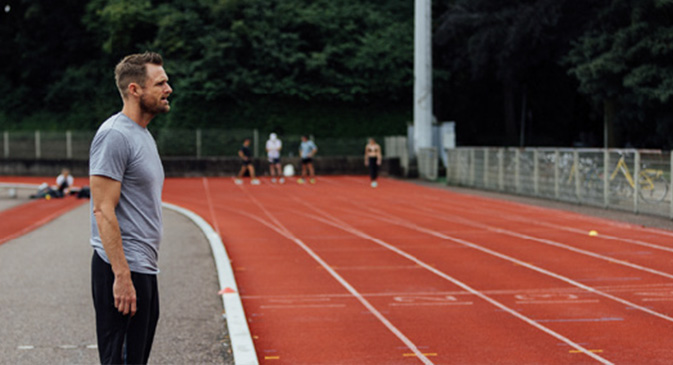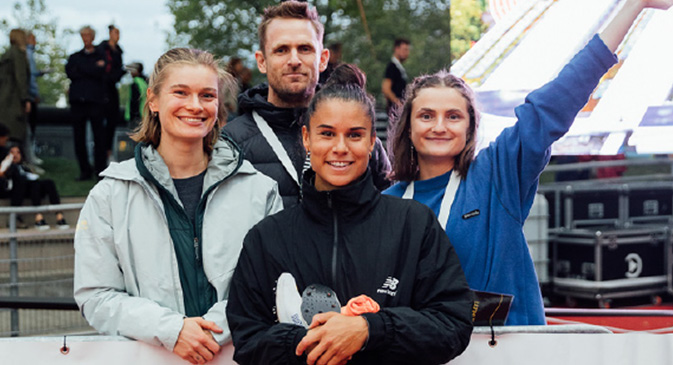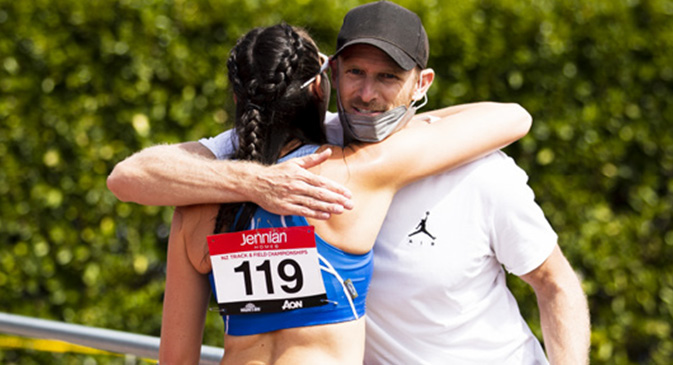James Mortimer
James Mortimer
- Athletics
- Coach Profile
As coach to a crack group of New Zealand’s premier sprinters led by the world-class Zoe Hobbs, James Mortimer has earned a reputation as the “king of speed”.
The Auckland-based coach – himself a former national 200m and 400m champion, has over the past five years or so, carved a reputation as the “go to” sprints coach in the country.
Also coach to the current women’s national 200m champion Georgia Hulls, New Zealand women’s 400m champion Rosie Elliott and New Zealand 400m hurdles record-holder Portia Bing, it is easy to see why his reputation for coaching excellence is so strong.

So when did he first develop a passion for coaching?
“I started coaching while still competing as an athlete”, he explains. “It was something I wanted to try and I had a couple of young athletes approach me asking for assistance and I wanted to give back to a sport that I love.”
“When I saw the athletes enjoying training and improving along the way, that was enough success for me.”
Coached himself by Matt Dallow, who currently guides New Zealand pole vault queen Eliza McCartney, James still uses Matt as a sounding board and mentor today. He has also learned a lot from British coach Paul Gamble who was formerly based in New Zealand.
Referring to the pair as “great teachers”, he still regularly talks to both and James admits what the pair taught him most was to connect with the athlete first – a philosophy he has adopted in his coaching career.
“I love talking to the genuinely good coaches – the ones who are willing to help and share. There are no secrets, and they also want the sport to prosper.”
“If you try to understand the athlete, you will get the most out of them. It is more than just programming and stopwatches. To me, coaching is both art and science. You have to move freely and adapt the science to suit the athlete, and that is the art.”
Overseeing the progress of Zoe Hobbs develop into the first female 100m sub-11-second sprinter has been, arguably, his greatest achievement.
Her success has given genuine belief that Kiwi athletes can excel on the global stage. This is highlighted further with several sprinters representing New Zealand at the 2023 World Athletics Championships in Budapest.
“It depends on the level you want to coach,” he says. “A good eye for movement always helps, but you also develop that over time and watching so many different athletes.”

“I don’t necessarily think being an athlete myself was an advantage. Yes, I knew what it was like to stand on the start line. I know the nuances of sprinting and the sport, but it shouldn’t stop someone who is passionate about sprinting to start coaching.”
Relatively young at the age of 40, the North Shore resident believes he has plenty of growth ahead of him as a coach. In fact, James believes continually striving to learn more as a coach is a critical component on the road to success.
“I’m always searching for ways to do things better. I want to be a better coach, not just in a technical sense, but also understanding when it’s time to take the coaching hat off at the end of the day.”
“I continue to make mistakes every day. If I didn’t, or don’t think I do, then my learning and progression will stop, and coaching will become boring.”
Possessing a naturally calm and unflappable nature, James offers reassurance to all his athletes that he will not only improve them on the track, but also holistically.
A good coach requires not only technical skills, but a more pastoral approach.
James highlights “patience, communication and genuine care for the athletes” as key elements to building a strong coach-athlete relationship.
“You need to remember the athlete makes the coach. Listening to the athletes needs and learning to adapt those into your coaching philosophy allows the athletes to feel more in control on their own journey.”
James insists as a coach he has developed as a person and his greatest accomplishment is for his athletes to become great people through sport.

With a crop of some of the greatest sprinters that New Zealand has ever had – many still some years away from peaking – the future is hugely exciting. So, what are James’ future ambitions as a coach?
“I want to see multiple New Zealand sprinters at the Olympic Games and making finals, and not only my athletes.”
“I would like international athletes and coaches to look at New Zealand and wonder what we are doing down here. I would also love to see other New Zealand sports feed off us for their own success.”
“It is a great thrill as a coach to watch an athlete turn up five or six days a week to training all year around and suddenly drop a .10 personal best.”
Humbled and appreciative of the love and support he receives from his wife Jenni and four-year-old son Knox, he is able to pursue his passion for coaching.
James loves the cut and thrust and daily challenge of coaching, and would encourage others to make the same step.
“I feel you learn more about your sport coaching it, than being coached,” he adds. “Getting young athletes to coach, helps them see things with a different lens. Plus it makes you curious and motivated in other areas of your life, also.”